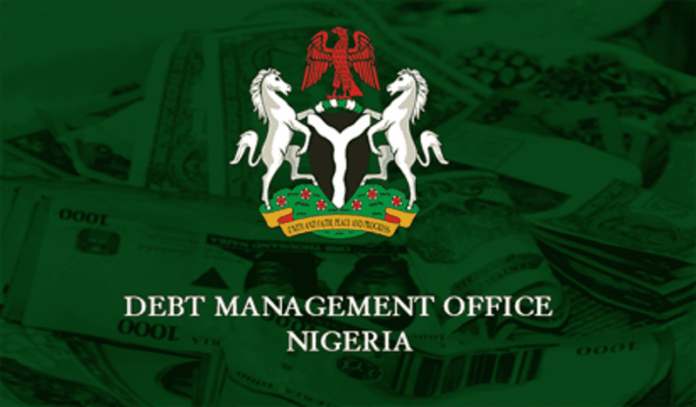The Debt Management Office (DMO) has said the data for the third quarter of 2024 saying Nigeria’s total public debt rose by 5.97 per cent or N8.02 trillion, to N142.3 trillion as of September 30, 2024.
As of June 2024, the country’s total public debt was N134.3 trillion.
The DMO attributed the rise to naira depreciation as well as heavy domestic borrowing by the federal government.
The exchange rate weakened from N1, 470.19/$ in June and peaked at N1, 601.03/$ by the end of September.
The DMO stated that the federal government accounted for the bulk of domestic debt, which rose from N66.96 trillion in June to N69.22 trillion by September, while the portion owed by states and the Federal Capital Territory (FCT) declined slightly during the period, from N4.27 trillion to N4.21 trillion.
Data showed that Nigeria’s external debt in dollar terms grew marginally by 0.29 per cent, from $42.90 billion in June to $43.03 billion in September.
However, the naira equivalent of external debt surged significantly by 9.22 per cent, rising from N63.07 trillion to N68.89 trillion during the same period.
Domestic debt recorded mixed performance, declining by 5.34 per cent in dollar terms, from $48.45 billion in June to $45.87 billion in September. In naira terms, however, domestic debt increased by 3.10 per cent, from N71.22 trillion to N73.43 trillion.
The DMO also stated that the federal government bonds remained the largest component of domestic debt, increasing by 4.47 per cent to N54.65 trillion in September, up from N52.32 trillion in June.
This represents 78.95 per cent of the total domestic debt stock, an increase from 78.13 per cent in the previous quarter. The issuance of bonds in naira terms accounted for the majority of this growth.
It was also noted that Nigeria’s first domestic dollar-denominated bond added N1.47 trillion to the debt stock.
The report also showed that the second-largest domestic debt component, Treasury Bills, declined marginally by 0.66 per cent to N11.73 trillion, from N11.81 trillion in the previous quarter. This reduction aligns with efforts to moderate short-term debt and mitigate rollover risks.
Promissory notes, used to settle government obligations, grew by 5.80 per cent, increasing from N1.67 trillion in June to N1.77 trillion in September.
While the federal government’s Sukuk, an infrastructure funding instrument declined by 9.14 per cent to N992.56 billion, down from N1.09 trillion.
Furthermore, the DMO said savings bonds increased by 16.11 per cent to N64.09 billion, reflecting growing retail investor participation.
However, it said green bonds remained unchanged at N15 billion, maintaining their minimal contribution of 0.02 per cent to the domestic debt stock.


























































